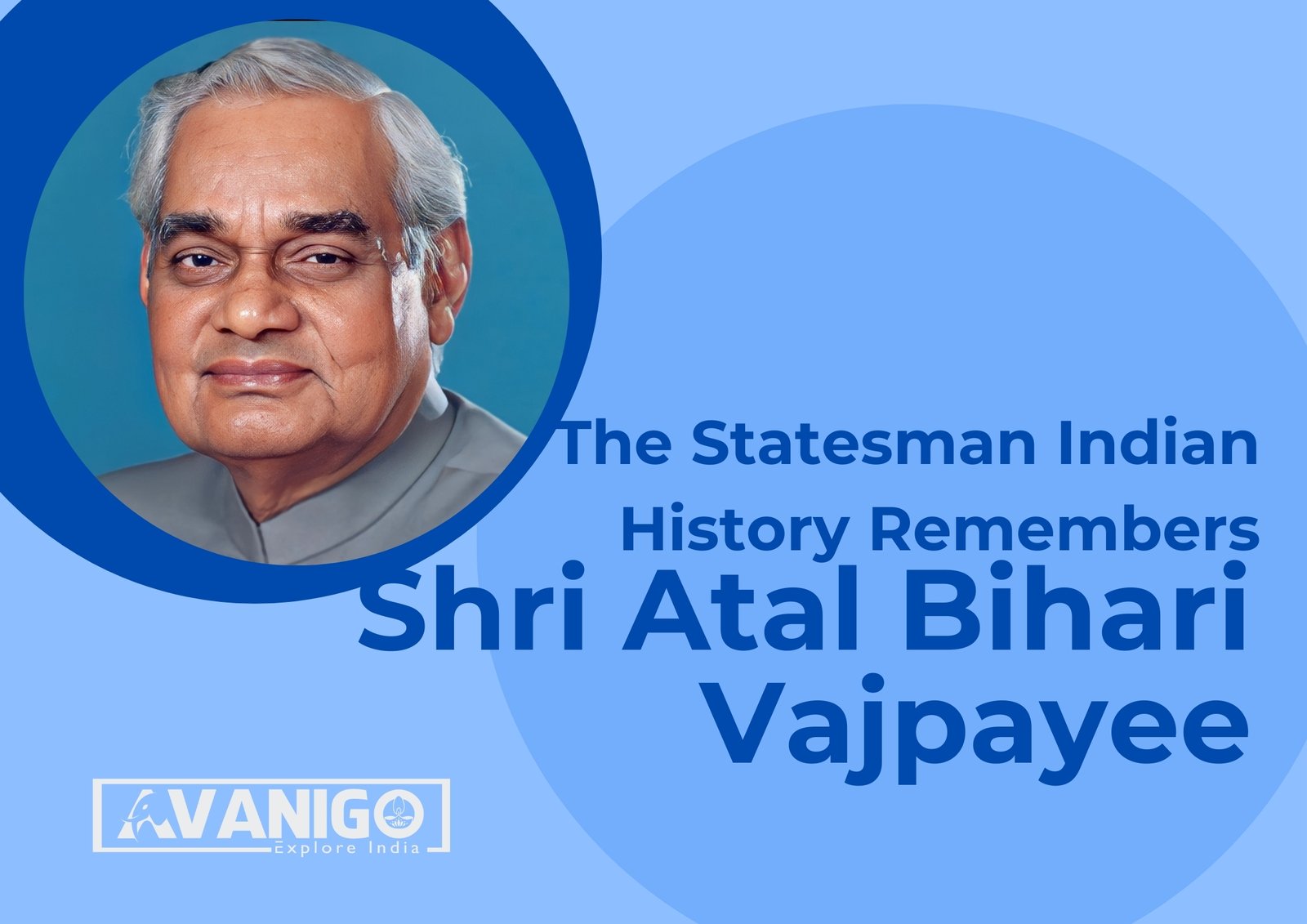Atal Bihari Vajpayee was one of the finest Indian politicians who literally changed how the politics in the history of the country. Atal Bihari Vajpayee birthday is on December 25, 1924, and he became a symbol of lifelong dedication to his service to the people of India.
In his youth, Vajpayee dreamed of and started the journey which eventually led him to the office of Prime Minister of India. Starting as as a member of Bharatiya Jana Sangh (BJS) with his pivotal role in the formation of the Bharatiya Janata Party (BJP). His political career was characterized by his ability to bridge divides and forge alliances.
Quick Navigation
Childhood and Personal Life
AB Vajpayee was born to a middle-class family in Gwalior, Madhya Pradesh, India. His father, Krishna Bihari Vajpayee, was a school teacher. The mother, Brahm Devi, was a home maker. The early years of Vajpayee were defined under the shadows of the Indian political turmoil created by a fight for independence from British rule.
A strong source of inspiration during his youth was the philosophy of Hindu nationalism and the idea of independence of India from colonial rule. Young Vajpayee was an early recruit into the Rashtriya Swayamsevak Sangh, the Hindu nationalist organization, and he quickly became recognized for his skills as an orator and fervent support for the ideological conception of the BJP.
AB Vajpayee remained bachelor throughout his life but he did adopt a girl. AB Vajpayee daughter, Namita Bhattacharya was the child of his friend Rajkumari Kaul. Namita lived with him throughout his life.
Entry into Politics
His political life began in the year 1957 when he was elected first to the lower house of Indian legislatures, the Lok Sabha, as a member of the then-Bharatiya Jana Sangh (BJS), the precursors to the BJP now. As his political influence grew over the next two decades, he solidified his role as one of the respected faces of Indian politics.
In 1977, BJS joined hands with three other parties to form the Janata Party, which governed till July 1979. During this government, AB Vajpayee hoisted the national flag and became the foreign minister of the country when he worked on improving neighbourhood countries like Pakistan and China.
Learn about Indian New Parliament Building
The Rise of the BJP
Following the disintegration of the Janata Party in the year 1980, Vajpayee played a prominent role in reorganizing the BJS into the Bharatiya Janata Party (BJP). Under his leadership, the BJP was quickly catching on and turning into a changing force in Indian politics.
Dashing with an eloquent, charismatic personality and the ability to connect with all types of people helped the BJP come to power. An eloquent speaker and poet by heart, he was known for excellent speeches, the power of bridging the divides, and absolute commitment to principles.
Samvidhan Diwas: India Constitution Day
Prime Minister of India
1996 was the year when Atal Bihari Vajpayee was first sworn in as Prime Minister of India, and it was a very short 13-day term. However, the later tenure was from 1998-1999 for 13 months. Then finally a full term from 1999-2004 and it proved a significant landmark in realities that transformed the country.
During his tenure, India enjoyed a healthy GDP growth rate, and the country emerged as the world leader in the field of the information technology industry. The Vajpayee government further launched a sweeping program of divestment of public funds from several strategic state-run sectors intended to enhance efficiency and competitiveness in the economy.
However, one of Vajpayee’s most outstanding achievements was his instrumental role in breaking the long-standing deadlock between India and Pakistan over the Kashmir issue. In 2003, he made a comprehensive move towards improving relations with Pakistan. It was a move that was highly praised within India and on the international forum.
Challenges and Controversies
There were problems and controversies during Vajpayee’s prime minister term. His government was criticized in 2002 for slow action when riots broke out in Gujarat, killing over 1,000 people, most of them Muslims. But Vajpayee’s government also received criticism from the West for India’s testing of a series of nuclear bombs in 1998. Vajpayee, however, remained adamantly defiant, arguing India’s right to develop its nuclear capabilities.
Nevertheless, AB Vajpayee remained a respected and much-admired figure within India and international circles. H was noted for his conciliatory overtures towards India’s Muslim minority and endeavours at bringing out harmony and peace. He was well recognized for his efforts.
Facts about Supreme Court of India
Retirement and Legacy
According to Vajpayee, awards are not for him but for his remarkable contributions he was awarded Bharat Ratna in 2015. This award became a perfect tribute to an individual who once dedicated his whole life to the service of the Indian people.
He had also received Padma Vibhushan in 1992. He announced retirement from politics in 2005, making it the end of an era in una post-independence Indian politics. AB Vajpayee death happened on 16 August 2018. AB Vajpayee age was 93 at the time of his death. Even after his demise, his shadows remained cast in Indian history, inspiring and influencing us who live in the country, he so passionately served.
Ratan Tata: The Humble Titan of Indian Industries
Atal Bihari Vajpayee Quotes
Here are some of the AB Vajpayee Quotes that will surely make you admire his thoughts and personality.
“Victory and defeat are a part of life, which are to be viewed with equanimity.”
“Empowering the individual means empowering the nation. And empowerment is best served through rapid economic growth with rapid social change.”
“We are unnecessarily wasting our precious resources in wars… if we must wage war, we have to do it against illiteracy, poverty, and backwardness.”
“The gun can solve no problems. It can only create more.”
Legacy of a Nation Maker
Atal Bihari Vajpayee’s life and legacy exemplify the strength of political leadership and the power of individuals to shape the future of a nation. While he was an archetypal leader, Vajpayee’s name and legacy will be renowned in future generations as one marking a new chapter for India. It leaves a lasting imprint in transforming the economic mainstream of India, enhancing its global stature, and inspiring future generations of Indians.
Swetha is a Content Specialist, LinkedIn Branding and B2B Marketing Consultant. When she is not in the world of B2B, she researches the roots and beauty of Indian Culture and Traditions. She is the author of the book: 365 Days 365 Posts – The Guide to LinkedIn Personal Branding, available exclusively on Amazon. Connect with her on LinkedIn.

